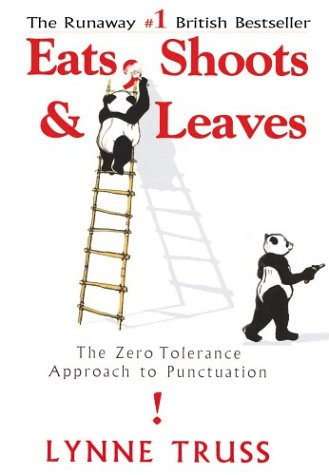Eats, Shoots & Leaves by Lynne Truss
 Eats, Shoots & Leaves
Eats, Shoots & Leaves
by Lynne Truss
New York, NY:
Gotham Books, 2003.
Achieving what some would call the impossible, Lynne Truss actually makes punctuation interesting. From the six common rules of the comma (plus one not so common) to the history of the semicolon, Truss thoroughly enwraps her readers in a diatribe on the uses and abuses of modern grammatical markings. At her wittiest, she lashes out at grocers and their misuse of apostrophes in plural words (i.e. “Banana’s on sale!”) and the movie business for leaving out the same mark in titles like Two Weeks Notice. At her most informative, Truss identifies the most eloquent moments and horrific mistakes made by authors, journalists, advertisers, and politicians. As commentary and instruction, it is a great read both for those that have ever been a grammatical “stickler” and others that just want a few pointers on how to correctly use an ellipsis. For weeks after reading it, you’ll find yourself questioning every comma you use, and wondering whether Lynne Truss would approve.
